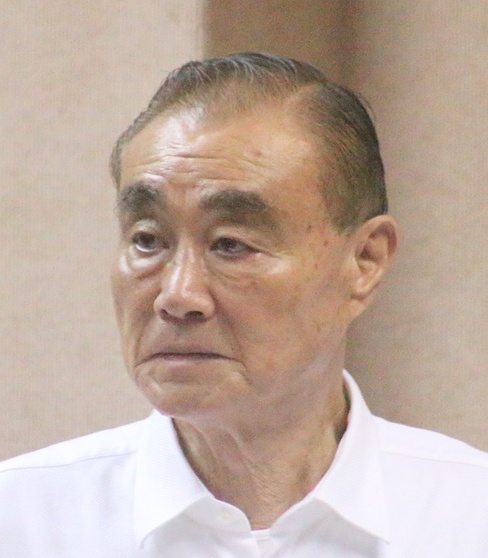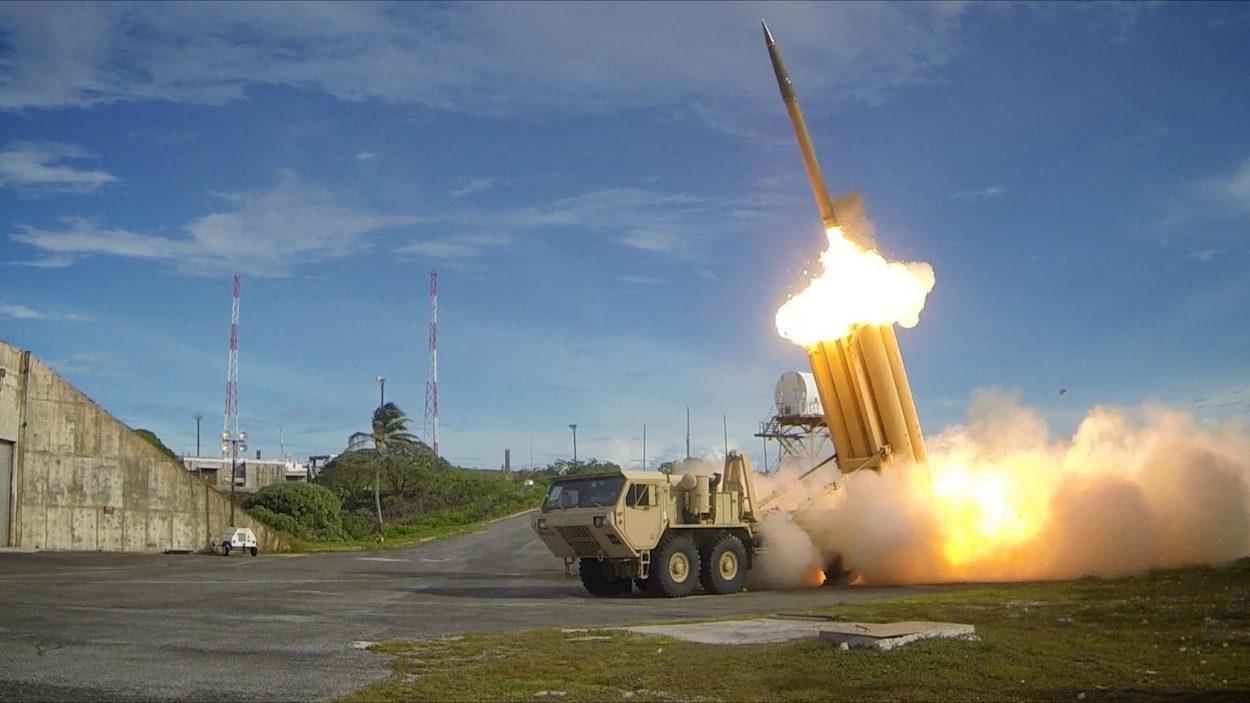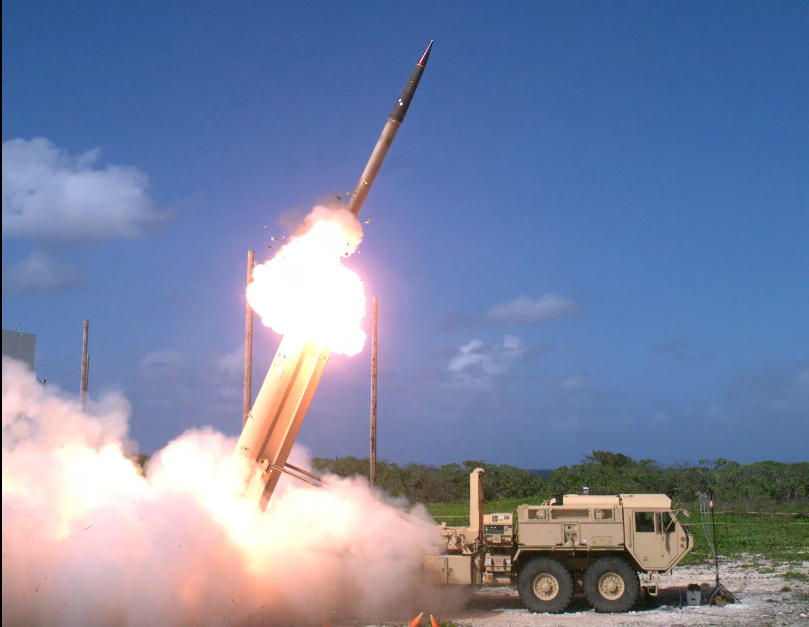by Brian Hioe
語言:
English
Photo Credit: Jeremy Larlee/CC
THE QUESTION OF what stance Taiwan should take regarding the Terminal High Altitude Area Defense antimissile defense system is one highly revealing of Taiwan’s dilemma of being caught between the superpowers of America and China. Hence the importance of not simply uncritically advocating for the installment of THAAD in Taiwan, as many have suggested, but rather to reflect on which how Taiwan simply has no good choices regarding whatever stance it takes on THAAD—something which returns to Taiwan’s position as uncomfortably caught between America and China.
Taiwanese government officials such as Minister of Defense Feng Shih-Kuang have indicated that Taiwan will not pursue installment of THAAD at this time, stating that, “We don’t fight others’ wars,” and that Taiwan does wish to involve itself in the conflicts of other countries. Nonetheless, Feng’s comments are in all likelihood a false justification for Taiwan not pursuing THAAD.
 Feng Shih-Kuang. Photo credit: CC
Feng Shih-Kuang. Photo credit: CC
Namely, in the case that America offers Taiwan THAAD, the Tsai administration seems to have deemed it to be too dangerously provocative of China to install THAAD in Taiwan in observation of China’s vehement responses against the installment of THAAD in South Korea. In retaliation for THAAD, China has succeeded in using its economic might as a weapon against South Korean companies by encouraging nationalistic citizens to boycott South Korean companies, particularly the fast food chain Lotte, which had agreed to hand over land owned by the company to the South Korean government for THAAD installment sites. Another prominent display of Chinese nationalism directed against THAAD deployment in South Korea would be 3,400 Chinese citizens on a cruise refusing to leave the cruise ship en masse when it was docked in South Korea as part of their tour. Likely the Tsai administration fears not only the possible economic targeting of Taiwanese companies by China, seeing as the Taiwanese economy is highly integrated with the larger Chinese one, but also sees THAAD installment as something which would degrade cross-strait relations to an even worse point than in the present.
Yet this is ironic. China does not actually have the capacity to launch a successful invasion and occupation of Taiwan due to lacking the lift capacity to transport the vast amount of troops needed to successfully invade Taiwan. Given the difficulties of landing operations, China would also sustain in the heavy troop losses in the process of invading Taiwan by beach, and the large amount of losses that China would sustain in the process of invading Taiwan could potentially lead to a legitimacy crisis for the CCP, apart from the open question of whether Chinese troops would have to put down resistance during an occupation. Because of the tense political climate within China currently as a result of Xi Jinping’s persecution of potential threats to power by way of his “anti-corruption” campaign and social unrest due to China’s slowing economic growth, it is to be questioned whether the CCP could handle an invasion of Taiwan in the present, and the CCP knows this as well.
But one of the major threats facing Taiwan regarding the possibility of Chinese invasion is the a missile decapitation strike by missile targeting Taiwan’s political leadership, which would lead to difficulties in coordinating resistance against Chinese landing operations or afterwards. If China could accomplish this, the task of invasion would be much easier, and likely require significantly less troops. China would thus sustain far less losses.
 THAAD firing during an exercise in 2013. Photo credit: U.S. Department of Defense/CC
THAAD firing during an exercise in 2013. Photo credit: U.S. Department of Defense/CC
For Taiwan, THAAD could be crucial in eliminating or mitigating the threat of a decapitation strike faced by Taiwan, given the large range of the antimissile defense system. The exact range of THAAD is classified, however, THAAD missiles have an estimated effective range of 200 km and has a radar detection range of 2,000 km. As such, some have hailed THAAD as potential game changer for Taiwan. Some argue that THAAD missiles stationed in South Korea likely would not guard very effectively against the possibility of a Chinese missile assault on South Korea due to their being positioned mostly to guard against the possibility of North Korean missile attacks, potentially involving nuclear missiles. Yet that China sees THAAD as a threat is evident in that it feels the need to drum up such anger over THAAD from citizens, in claiming that THAAD violates Chinese sovereignty because its large radar range makes it possible for America and South Korea to spy on China. Going off of Taiwan backing away from THAAD, China has been highly successful in this, evidently.
THAAD deployment is in fact protested by some in South Korea with the view that THAAD installation worsens tensions with North Korea and forestalls achieving the reunification of North and South Korea and the previous Park government saw public anger for moving in the direction of THAAD deployment without the consensus of the South Korean people in a socially divisive manner. Energy from elements of the movement to oust Park is now being channeled into protests against THAAD deployment in South Korea. But it obviously should be the sovereign and democratic right of South Korea’s citizens to weigh the advantages and disadvantages and decide if they want THAAD or not. Regardless of whether western commentators and analysts see this as an intelligent or unintelligent strategic choice for South Korea, it is the sovereign and democratic right of South Koreans to decide for their nation. And so it is similarly ludicrous of China to protest THAAD deployment in South Korea against the possibility of attacks from China or China’s proxy state North Korea which would kill South Korean citizens on the grounds that this violates Chinese sovereignty.
Much the same can be said regarding Taiwan regarding its own decision over THAAD. Taiwan’s dilemma is such that it nevertheless cannot pursue THAAD deployment for fear of pushing China over the edge in terms of cross-strait relations. Nevertheless, if Taiwan refuses THAAD, Taiwan then also faces the dilemma of how to placate the United States, which in the absence of official diplomatic ties between Taiwan and America, maintains a security relationship with Taiwan primarily based upon arms sales to Taiwan. Indeed, when it comes to weapons sales America perpetually claims that if Taiwan does not buy the weapons systems it offers to Taiwan, it will take this as a sign that Taiwan is not serious about safeguarding its de facto independence and decrease political support of Taiwan accordingly. This is something America has done for decades. This is particularly true in the Trump era, in which during his brief foray into suggesting a closer security relation to Taiwan, Trump justified this on the basis of large weapons purchases by Taiwan from America. Trump suggested on the other hand that he would consider withdrawing American troops from bases in South Korea and Japan on the basis of their being a drain on the American government budget.
 Photo credit: Missile Defense Agency/CC
Photo credit: Missile Defense Agency/CC
As such, if America makes such an offer, Taiwanese government officials have suggested that will consider purchasing other American weapons systems offered to it such as Lockheed Martin F-35 Lightning II fighter jets, rather than THAAD. Reading between the lines, this means that Taiwan will pursue the purchase of American weapons systems which will not provoke such furor from China. Yet it is to be questioned whether America would press the THAAD issue. If America in fact intends to take steps to counter China’s influence in the Asia-Pacific rather than withdrawing from commitments in Asia, the stationing of THAAD in Asia-Pacific countries as South Korea, followed by Japan, then Taiwan, and other countries could network antimissile defense across the region from Chinese or North Korean threats and better draw these countries together into military alliance to resist China. It is an open possibility that America may try to force Taiwan into this, regardless of whether Taiwan decides it is not a good moment to risk provoking China.
So, then, does Taiwan have to negotiate with China, but also America, its major guarantor of its current de facto independence from China, on the THAAD issue. What happens when Taiwan’s interests and America’s interests diverge, if Taiwan is unwilling to risk possible retaliation from China because of THAAD, but America insists? Would America claim that this means that Taiwan is drifting towards China again, as occurred under the Ma administration, and distance itself from Taiwan accordingly?
One can only speculate, but Taiwan’s THAAD question is illustrative in microcosm of Taiwan’s broader diplomatic dilemma of being caught between America and China. And this broader reflective of the means by which Taiwan being caught up in both America and China’s geopolitical aims in the Asia-Pacific means that at all times it faces the risk of Chinese annexation on the one hand and, on the other hand, faces the risk of being used as a geopolitical pawn against China by America.

